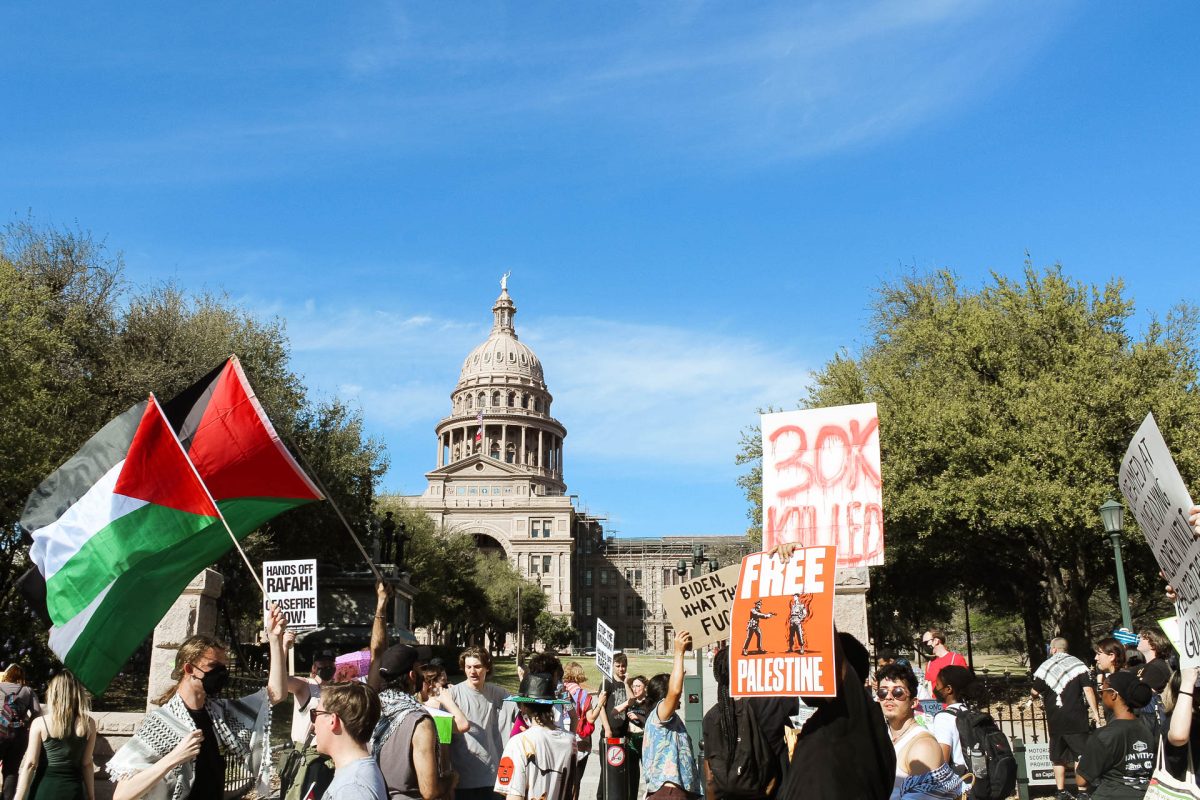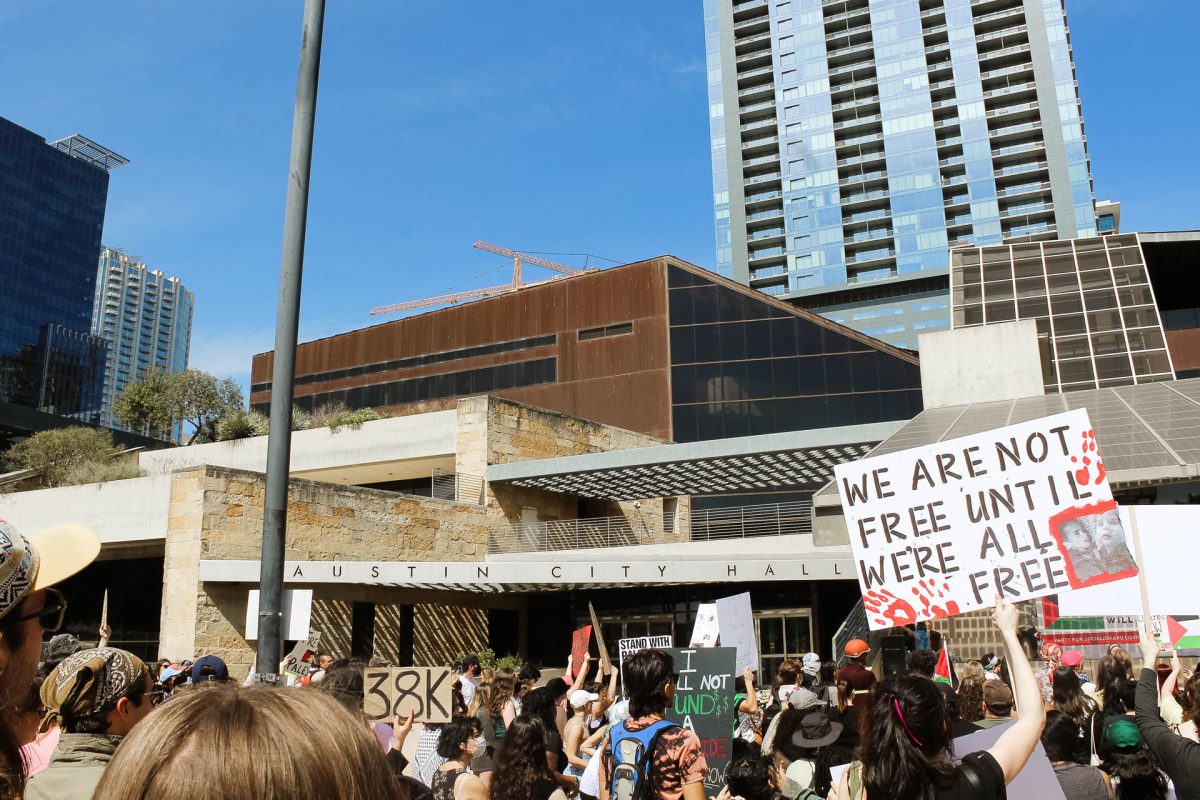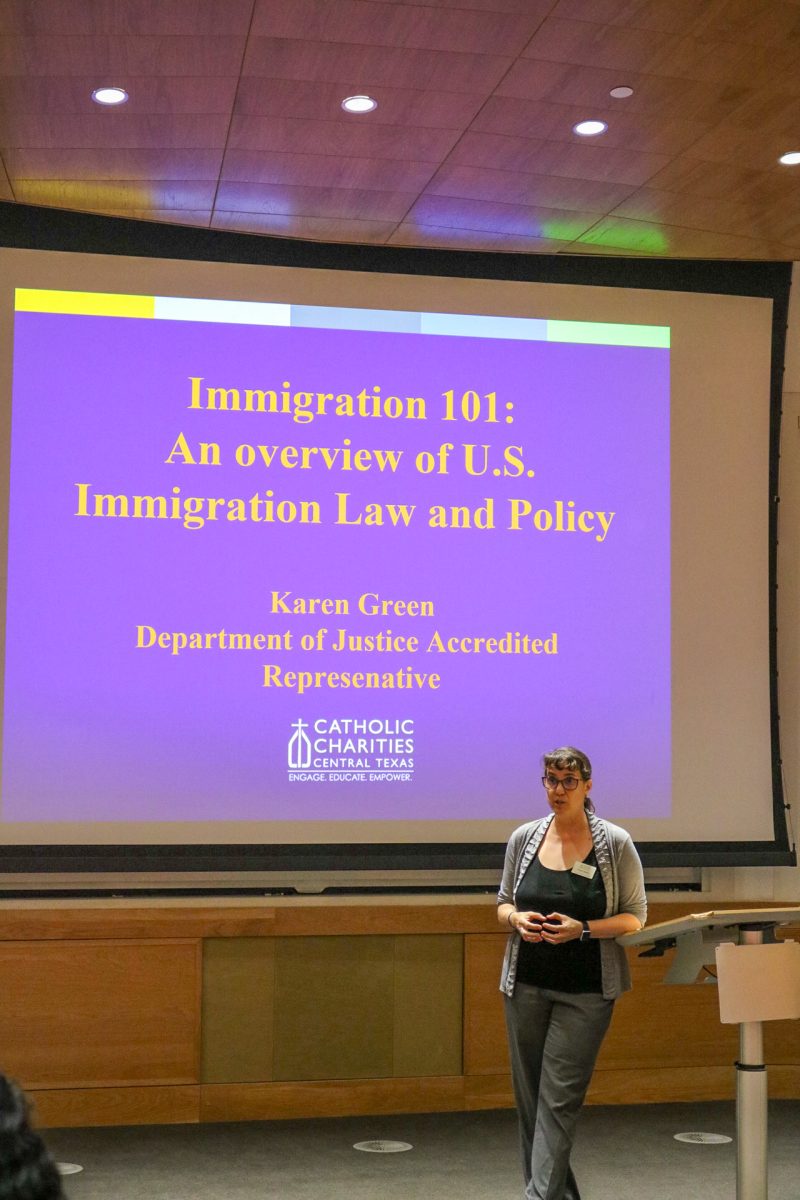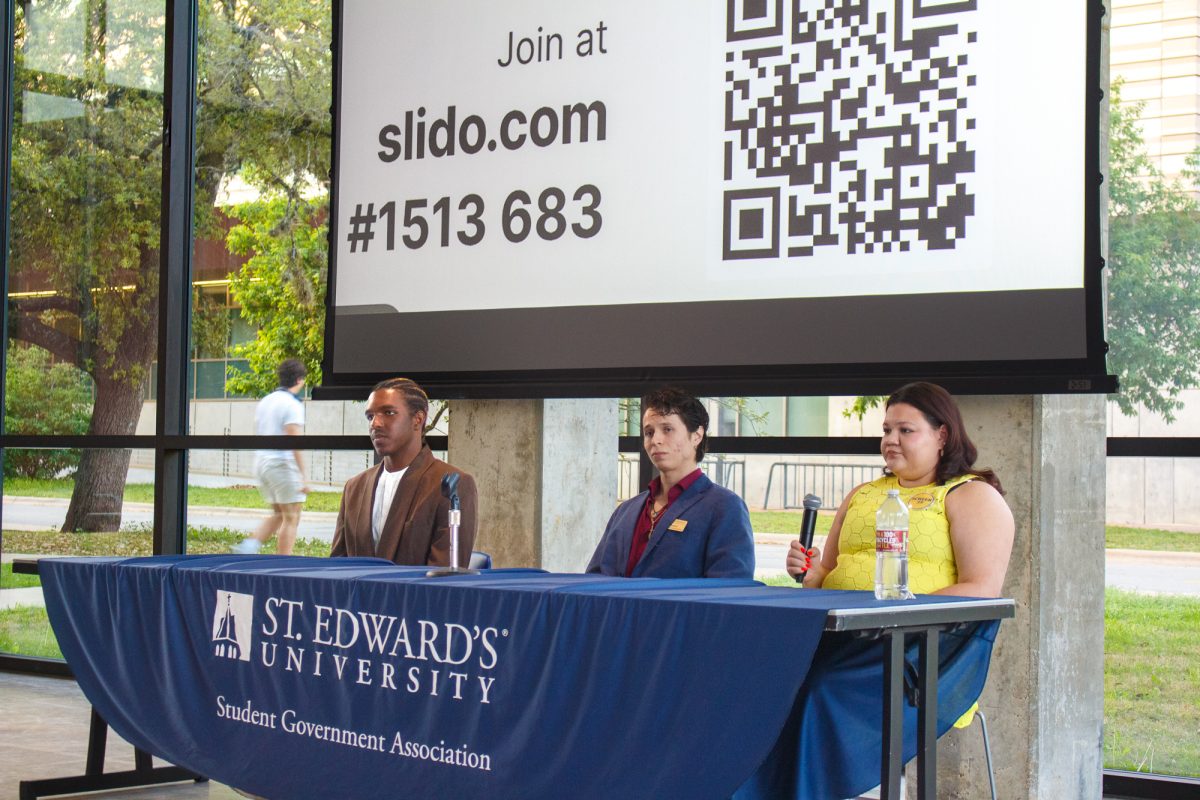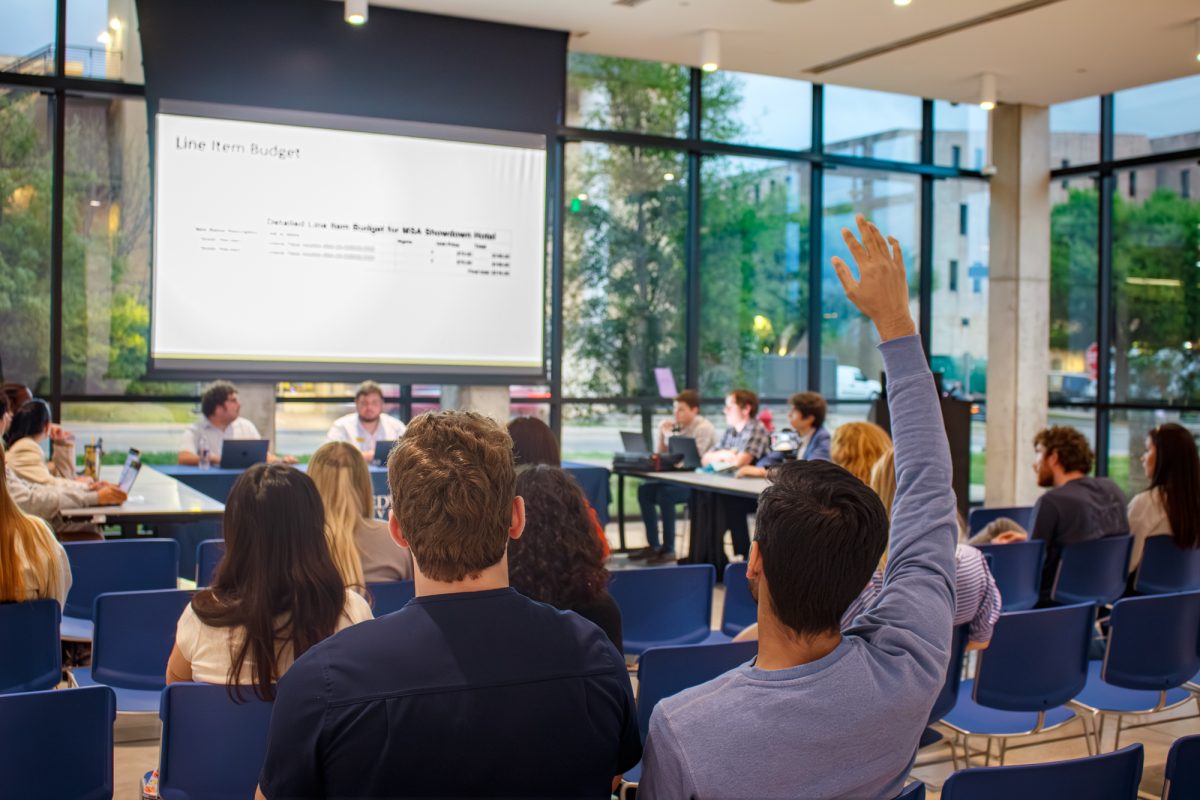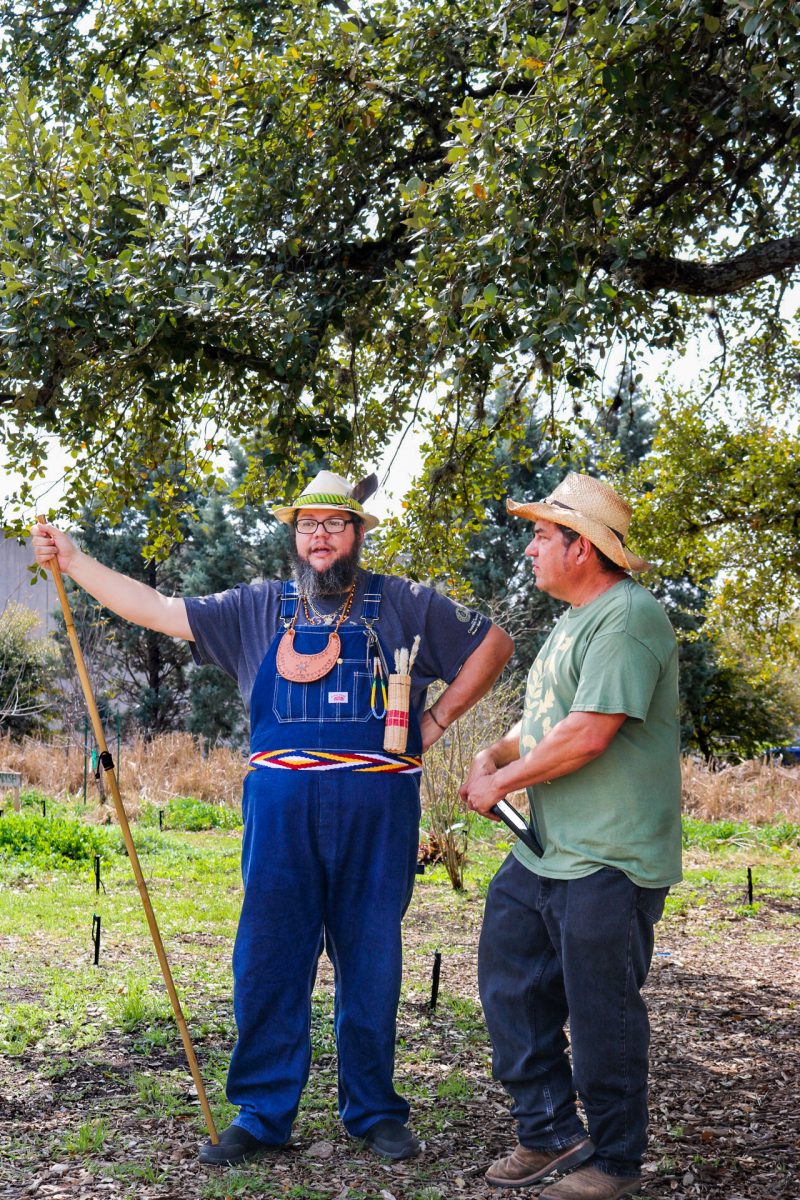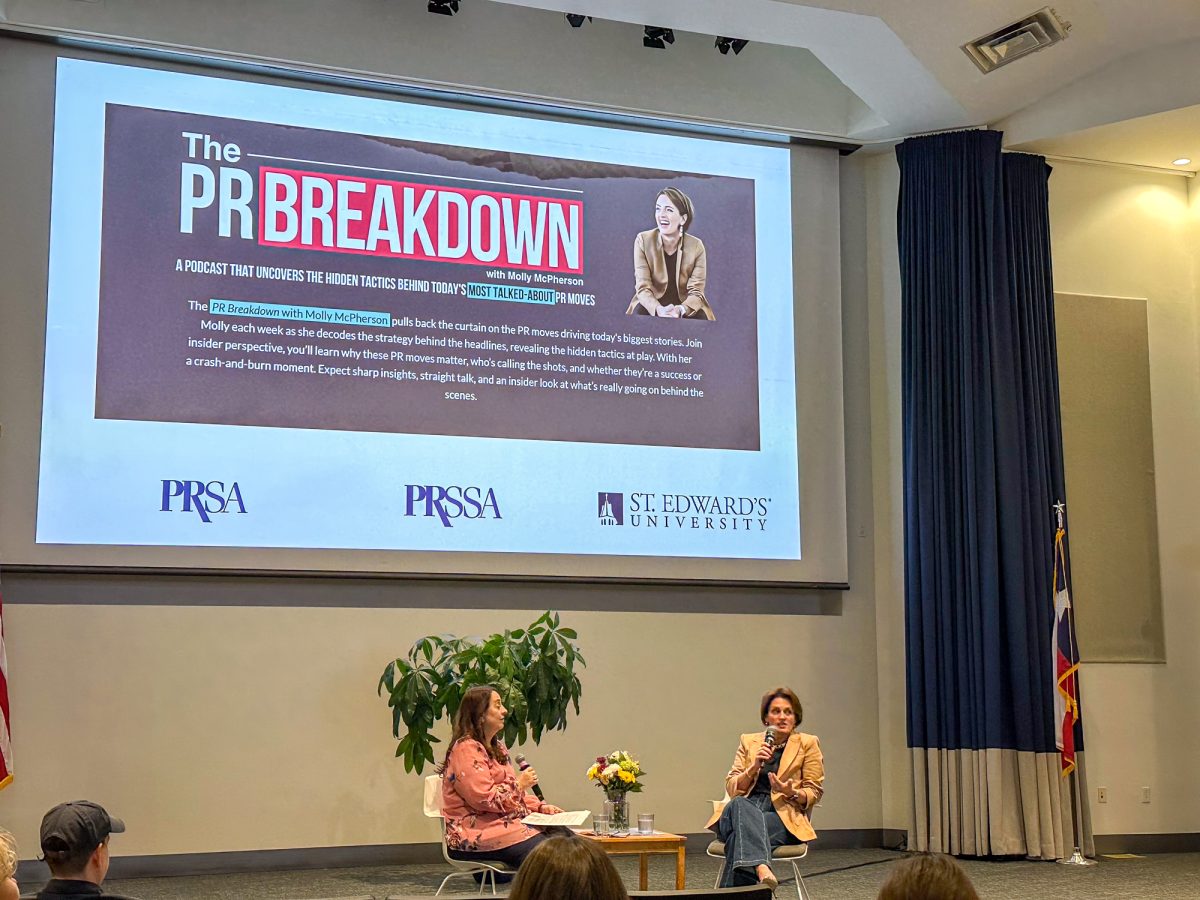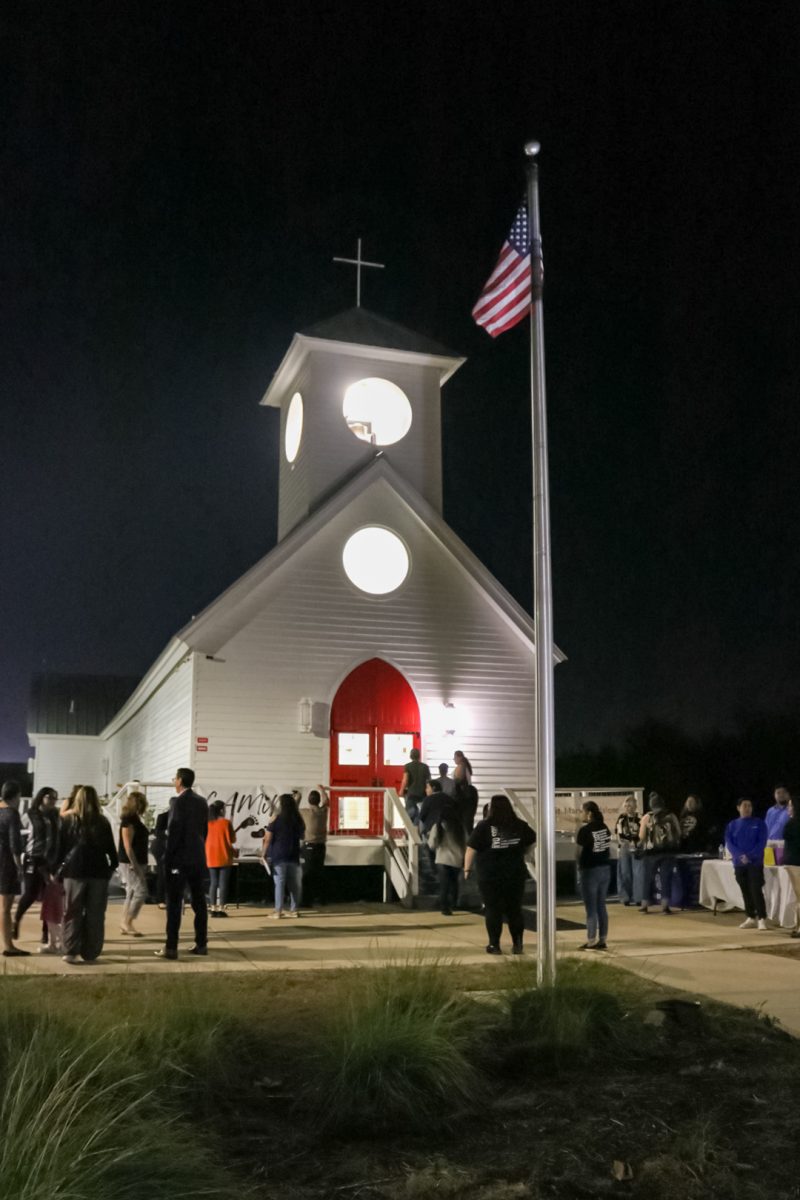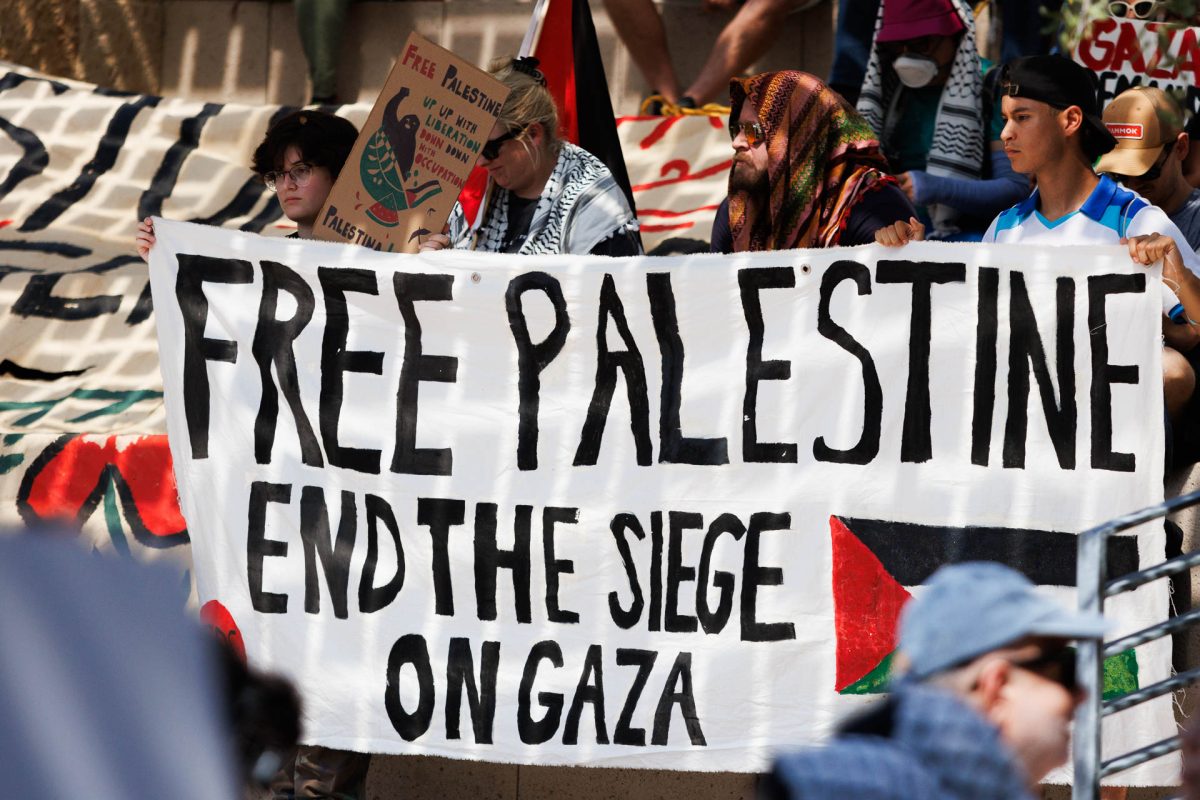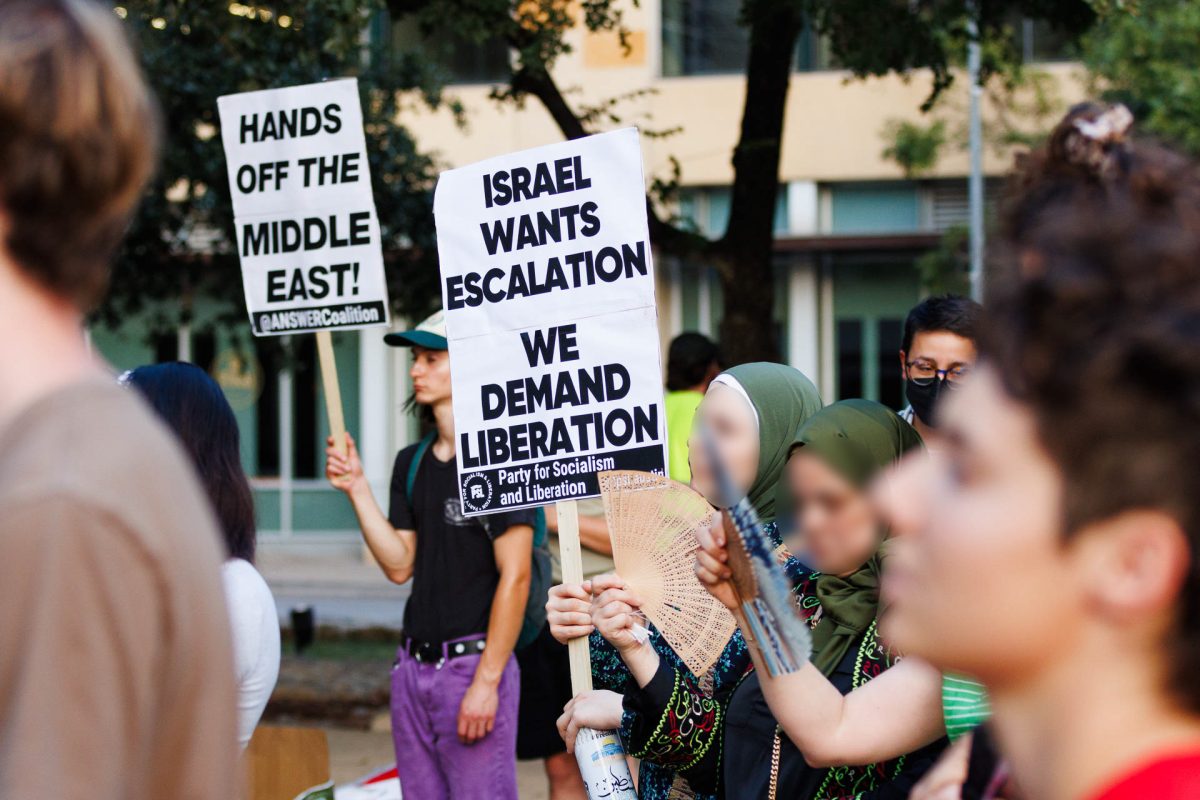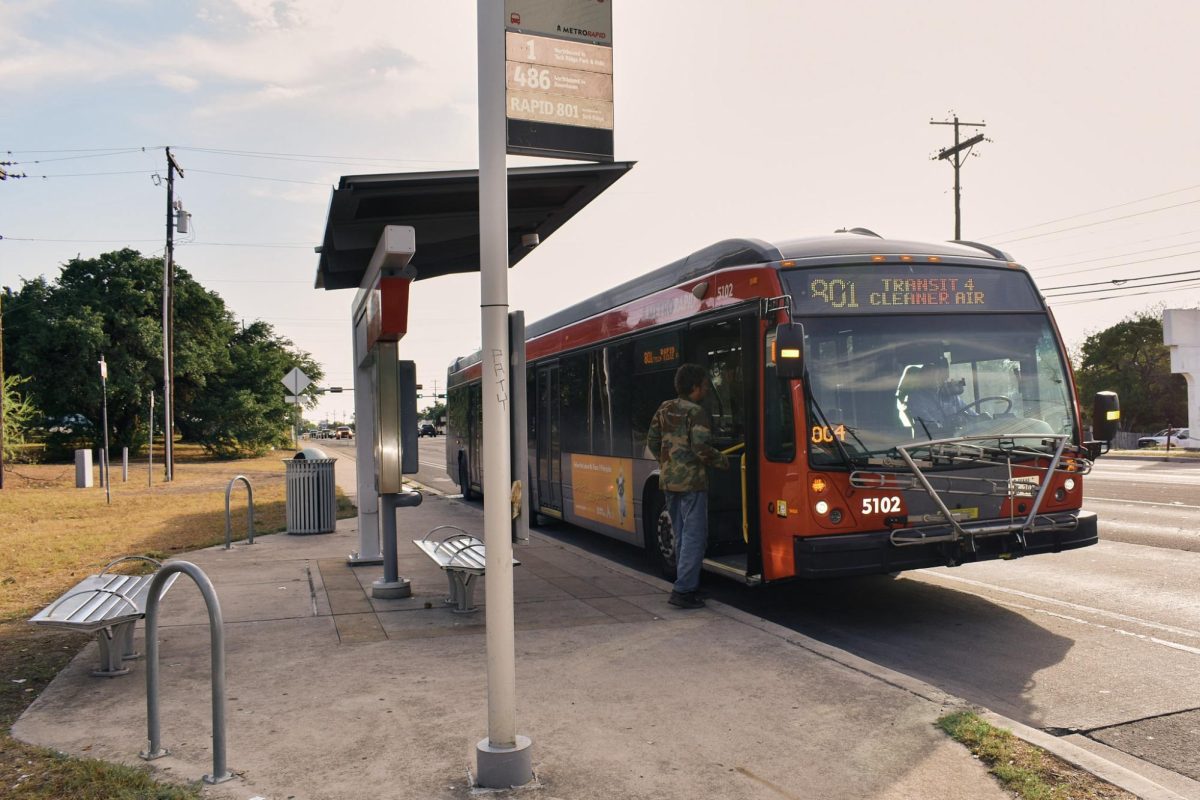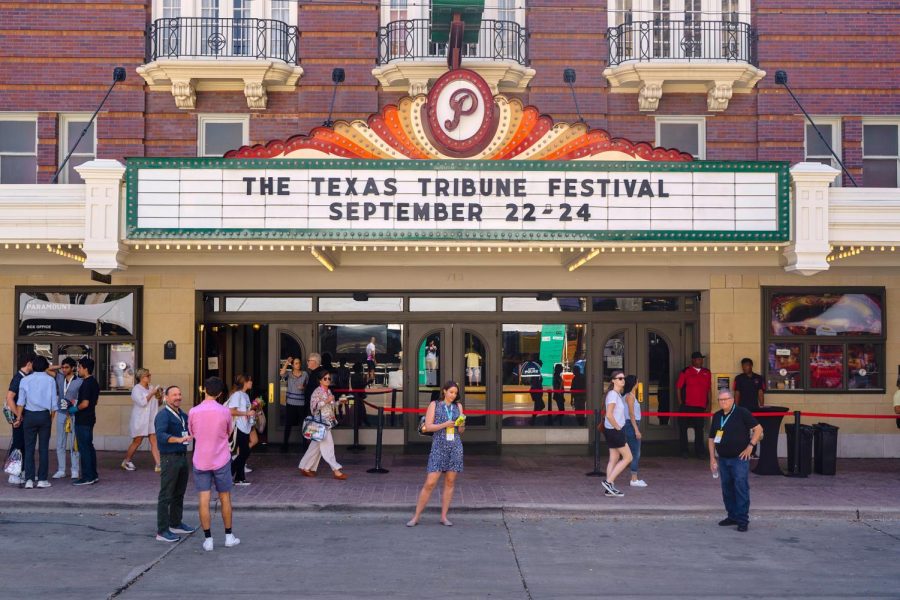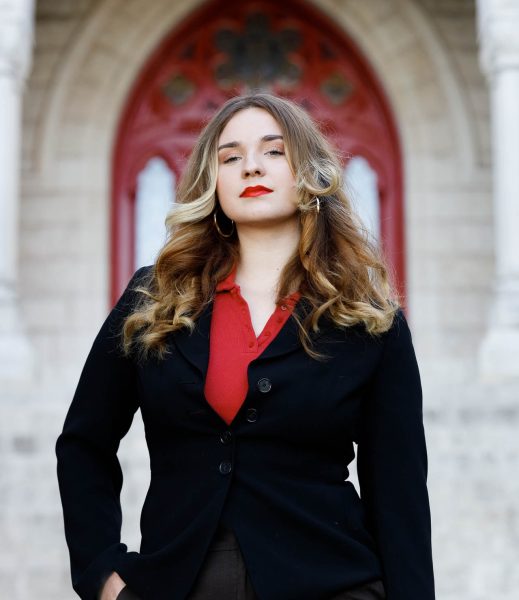Austinites took part in a nationwide call to action by the Palestinian Youth Movement called “March 2nd, Millions March for Palestine.” Across America, thousands of protestors took the streets as part of the initiative in cities like Los Angeles, New York City, San Francisco and Seattle. At 1 p.m. at Austin City Hall, a large group formed as speakers took turns advocating for a Palestinian ceasefire.
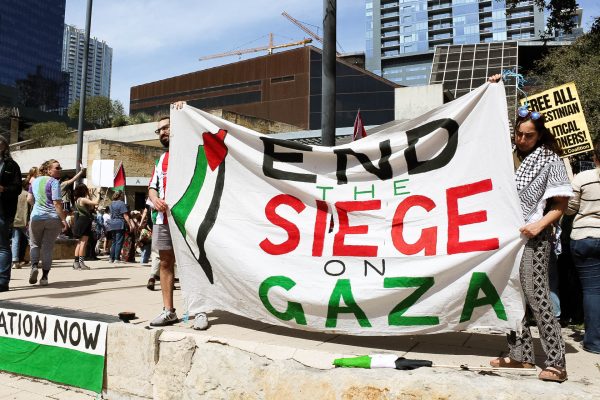
“Palestinian women, children, men, grandmothers, grandfathers, teachers, professors, journalists, all of them are paying the price after having endured a brutal 17-year-long siege and blockade that has already severely depleted resources and the quality of life in Gaza,” Ammer Qaddumi, a junior at the University of Texas at Austin, said. “Israel has, for the last 17 years, been restricting access to food, water, electricity, access to movement and the people of Gaza are now paying a price that they have no justification for paying.”
Hundreds of Austinites fanned out across the city hall’s lawn holding homemade signs and Palestine flags while wearing keffiyehs and chanting for a ceasefire. After listening to leaders and speakers at the rally, the protesters then paraded and circled multiple times through the streets of downtown Austin, going past the state Capitol and Governor’s Mansion while shouting multiple slogans like “Viva, Viva Palestina” and “Down, Down with the Occupation.”
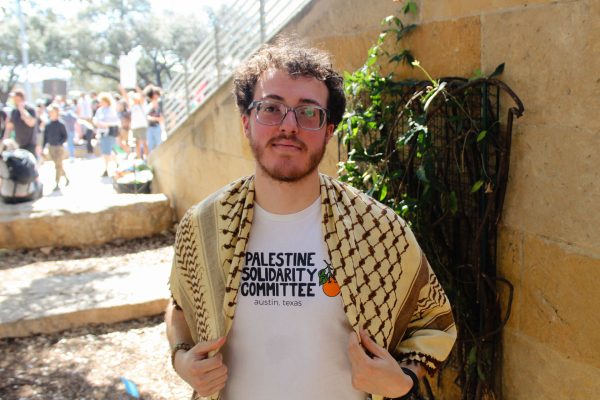
Qaddumi is one of the many attendees that led several chants and spoke to the crowd. As a member of the Palestine Solidarity Committee, he’s been advocating for Palestinian liberation for over two years. Additionally, Qaddumi is a member of the steering committee, a board of nine members with equal power who voice leadership for the Austin chapter of the Palestine Solidarity Committee.
Qaddumi explained the overall situation that Palestinians had endured in early October last year and the years leading up to it, saying that the people of Gaza are being subjected to collective punishment by Israeli forces for actions that happened on Oct. 7, which were committed by a particular group that Qaddumi said does not represent Palestinians as a whole.
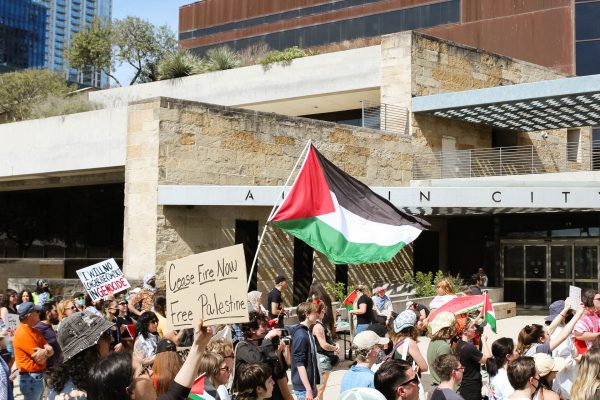
Qaddumi illustrated what the people of Gaza have already endured in the recent months. He elaborated that even before the events in October, Israel was still committing airstrikes and implementing the siege against hundreds of Palestinians each year, both in the West Bank and Gaza. After five months of war and a current Palestinian death toll of over 30,000, he emphasized the urgency for an immediate ceasefire. However, he told the listening crowd that the call for a ceasefire is only the first step of demands to achieve liberation for Palestinians.
“The current call for a ceasefire is to end the immediate suffering of Palestinians in the Gaza Strip,” Qaddumi said. “We still want and we’re still demanding that Israel beyond that stops their illegal occupation of the West Bank and Gaza, stops their illegal settlement building, stops their weapon testing on Palestinian civilians in the West Bank and Gaza Strip, and to allow Palestinians to live free and to live with equal rights as Jewish Israelis.”
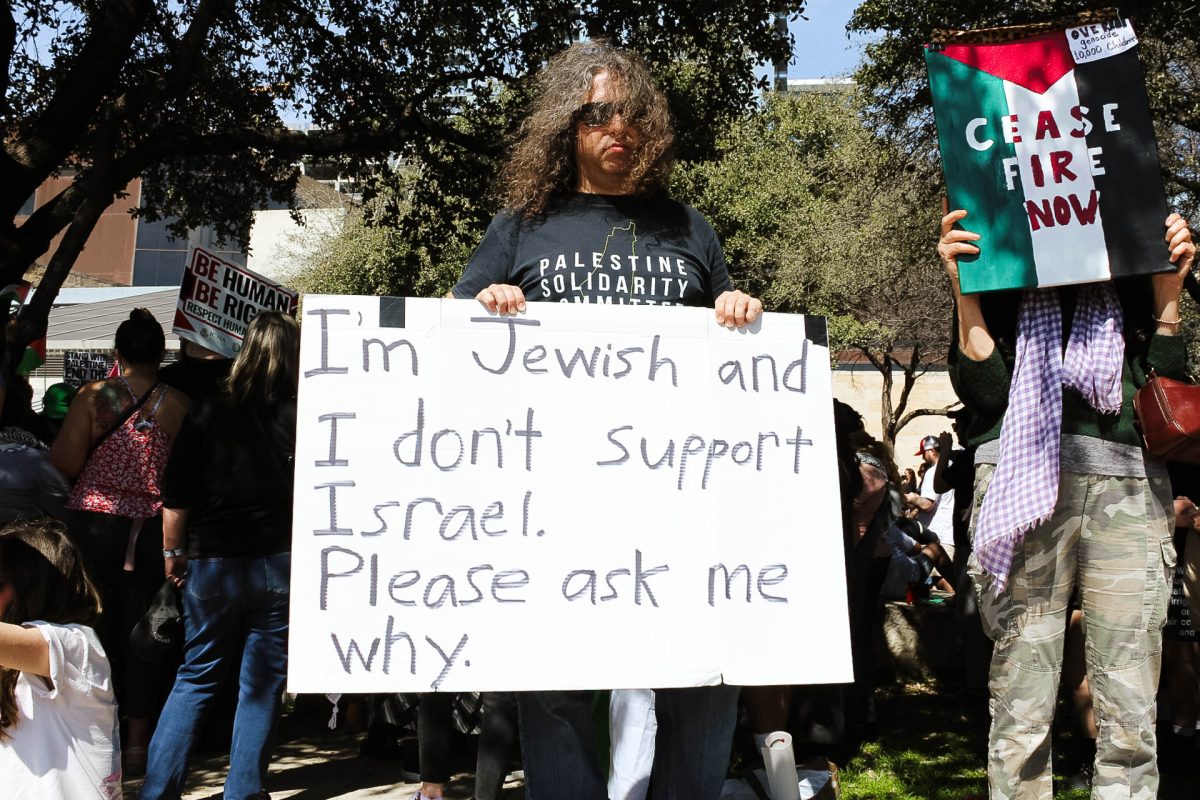
Raunaq Alan was another protest attendee who led multiple chants through a megaphone while marching through downtown Austin and at the Capitol. He spoke to Hilltop Views reporters on why he felt compelled to protest and why he has been advocating for Palestine as early as 2018, explaining that citizens don’t have to be directly affected by the conflict to care and speak up for Palestinian people.
“They’re not my people, but I see another civilian population being genocided, starved to death,” Alan said. “They have no food, no water, no electricity, no way out, and I just feel for them as if they were my own family.”
Alan also described that his participation in advocating for a ceasefire is a way for him to show his support to those in his life who are affected by the occupation in Gaza.
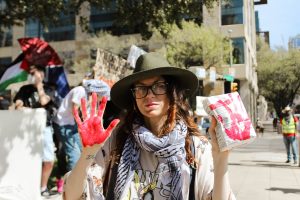
“I have friends here that have even lost family members in Gaza,” Alan said. “I have a Palestinian friend who lost 42 members of his own family. They’re not my own family, but it still hits close to home.”
Alan and Qaddumi both want to garner attention to the fact that staying informed with the events that are unfolding every day are crucial in gaining support and activism for the Palestinian people.
“The most important asset we have for our movement, we believe, is the truth of our narrative,” Qaddumi said. “So, we believe that if people just understand the Palestinian narrative, then that will garner sympathy for the cause for the struggle.”
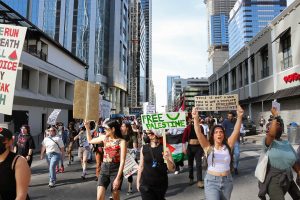
Qaddumi mentioned that in a place like the United States, which provides billions of taxpayer dollars in support of Israel every year, the American voice does matter in the outcome of this conflict, and that people in the U.S. have the power to step up in action.
“Individuals do have the power to come together and collectively pressure our politicians to change those policies,” Qaddumi said.
Qaddumi emphasized ways for people to spread the narrative or support the call for a ceasefire who may not be able to attend protests or other in-person calls for action.
“We believe that the most important thing for anyone who wants to get involved in support is to spread awareness of the Palestinian narrative and of the Palestinian struggle,” Qaddumi said. “Talk to your friends, repost on social media, you know, attend any events that you can. Just spreading awareness is the most important thing for anyone who wants to get involved.”
